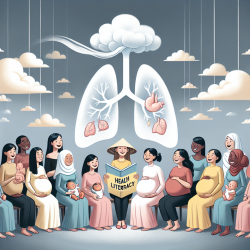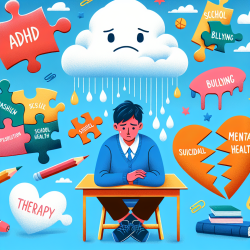Understanding the Role of Speech-Language Pathologists in Promoting Peace and Mental Health
The recent research article, Harbingers of Hope: Scientists and the Pursuit of World Peace, underscores the critical role that professionals across various fields can play in fostering peace and addressing the mental health challenges arising from conflict. As speech-language pathologists (SLPs), our work is integral to supporting mental well-being, especially in children affected by war and violence. This blog explores how SLPs can leverage their skills to contribute to peace-building efforts and improve mental health outcomes.
Key Insights from the Research
The research highlights several key areas where scientific and clinical interventions can make a difference:
- Impact of Conflict on Mental Health: Armed conflicts have long-lasting effects on mental health, contributing to conditions such as PTSD, anxiety, and depression.
- Importance of Early Intervention: Early and effective intervention can mitigate the adverse effects of trauma, particularly in children.
- Role of Education and Training: Training programs for mental health support can empower communities to better handle the psychological aftermath of conflict.
How SLPs Can Make a Difference
Speech-language pathologists are uniquely positioned to support children and communities in conflict-affected areas. Here are some strategies SLPs can implement:
- Provide Trauma-Informed Care: Understanding the impact of trauma on communication and language development is crucial. SLPs can tailor interventions to address the specific needs of children who have experienced trauma.
- Advocate for Mental Health Resources: By collaborating with schools and community organizations, SLPs can advocate for resources and programs that support mental health and well-being.
- Participate in Multidisciplinary Teams: Working alongside psychologists, social workers, and educators, SLPs can contribute to comprehensive care plans that address the holistic needs of children.
Encouraging Further Research and Collaboration
The findings from Harbingers of Hope encourage further research into the intersection of speech-language pathology and mental health in conflict settings. SLPs are encouraged to engage in research initiatives that explore innovative approaches to therapy and intervention.
Conclusion
As SLPs, our commitment to improving communication and language skills extends beyond the clinic. By actively participating in peace-building efforts and addressing the mental health needs of children in conflict-affected areas, we can contribute to a more peaceful and resilient world. For those interested in exploring this topic further, I highly recommend reading the original research paper. Harbingers of Hope: Scientists and the Pursuit of World Peace.










